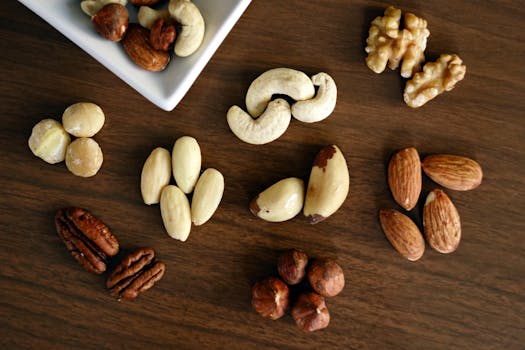Brazil nuts are a popular and nutritious snack for humans, but are they safe for your dog to eat? While dogs can enjoy certain nuts in moderation, others can pose serious health risks. If you’re wondering whether to share this treat with your furry friend, it’s important to know the potential dangers and when to seek veterinary advice.
🛑 Are Brazil Nuts Safe for Dogs?
Brazil nuts are not toxic to dogs, but they are not considered a dog-friendly snack. These large, calorie-dense nuts are high in fat, which can lead to a variety of health concerns in dogs. While an occasional Brazil nut may not cause immediate harm, frequent consumption or larger quantities can put your dog at risk.
Here are some key reasons why Brazil nuts may not be safe for dogs:
- High-fat content can lead to digestive upset or long-term health issues like pancreatitis.
- Large size and hardness of the nut may pose a choking hazard, especially for small dogs.
- Dogs with nut allergies or sensitivities may experience adverse reactions.
Ultimately, it’s best to avoid giving Brazil nuts to your dog altogether. Even as a rare treat, the risks often outweigh the benefits.
⚠️ Health Risks of Brazil Nuts for Dogs
Feeding Brazil nuts to your dog can lead to several health risks, ranging from mild digestive issues to more serious conditions. Here’s a closer look at the potential dangers:
- Digestive upset: The high-fat content can cause diarrhea, vomiting, or stomach pain.
- Pancreatitis: Excess fat consumption may trigger pancreatitis, an inflammation of the pancreas that requires veterinary care.
- Obesity: Brazil nuts are calorie-dense and can contribute to weight gain if given frequently.
- Choking hazard: Their large size and hardness can obstruct your dog’s airway or cause damage to teeth.
- Allergic reactions: Some dogs may have nut allergies, resulting in itching, swelling, or even anaphylaxis in rare cases.
If your dog accidentally eats a Brazil nut, monitor them closely for any signs of distress and contact your veterinarian if symptoms arise.
🐕 What Should You Do If Your Dog Eats a Brazil Nut?
If your dog gets hold of a Brazil nut, don’t panic. A single nut is unlikely to cause serious harm, but there are steps you should take to ensure your dog’s safety:
- Check your dog’s mouth and throat to ensure the nut hasn’t caused choking or lodged in their airway.
- Monitor your dog for signs of digestive upset, such as vomiting, diarrhea, or loss of appetite.
- Watch for symptoms of pancreatitis, including abdominal pain, lethargy, or fever.
In most cases, a single Brazil nut won’t require a vet visit. However, if your dog exhibits any unusual symptoms, contact your veterinarian for guidance.
🥜 Are Other Nuts Safe for Dogs?
Not all nuts are created equal when it comes to canine safety. Some nuts are safer than others, while certain types should be avoided entirely. Here’s a quick breakdown:
- Safe in moderation: Peanuts (unsalted and plain), cashews (unsalted), and almonds (in very small amounts).
- Unsafe for dogs: Macadamia nuts, walnuts, and pecans are toxic and should never be fed to dogs.
- High-risk nuts: Brazil nuts, pistachios, and hazelnuts are not toxic but can cause health issues due to their size, fat content, or potential for choking.
If you’re considering giving your dog nuts as a treat, always consult your veterinarian first and stick to options that are low in salt and sugar.
💡 Vet-Approved Alternatives to Brazil Nuts
There are many safer and healthier treats you can offer your dog instead of Brazil nuts. These options provide similar nutritional benefits without the risks:
- Carrot sticks or apple slices (without seeds)
- Plain, unsalted peanut butter (in moderation)
- Commercial dog treats formulated for their dietary needs
- Cooked, plain sweet potatoes
Always introduce new treats gradually and watch for any signs of intolerance or allergies.
FAQs
Q: Can a single Brazil nut harm my dog?
A: A single Brazil nut is unlikely to cause serious harm, but it can still upset your dog’s stomach or pose a choking risk. Monitor your dog closely and contact your vet if any symptoms arise.
Q: Are Brazil nuts toxic to dogs?
A: No, Brazil nuts are not toxic to dogs. However, their high-fat content and size make them a risky snack.
Q: What nuts are safe for dogs?
A: Peanuts (unsalted), cashews, and almonds in small amounts are generally safe. Avoid macadamia nuts, walnuts, and pecans, as these can be toxic.
Q: What are the signs of pancreatitis in dogs?
A: Symptoms include vomiting, diarrhea, abdominal pain, lethargy, and loss of appetite. If you notice these signs, contact your vet immediately.
Q: What should I do if my dog has an allergic reaction to a nut?
A: If your dog shows signs of an allergic reaction, such as itching, swelling, or difficulty breathing, seek emergency veterinary care right away.
Book a $49 online vet consultation at https://www.dialavet.com for fast, expert advice.








